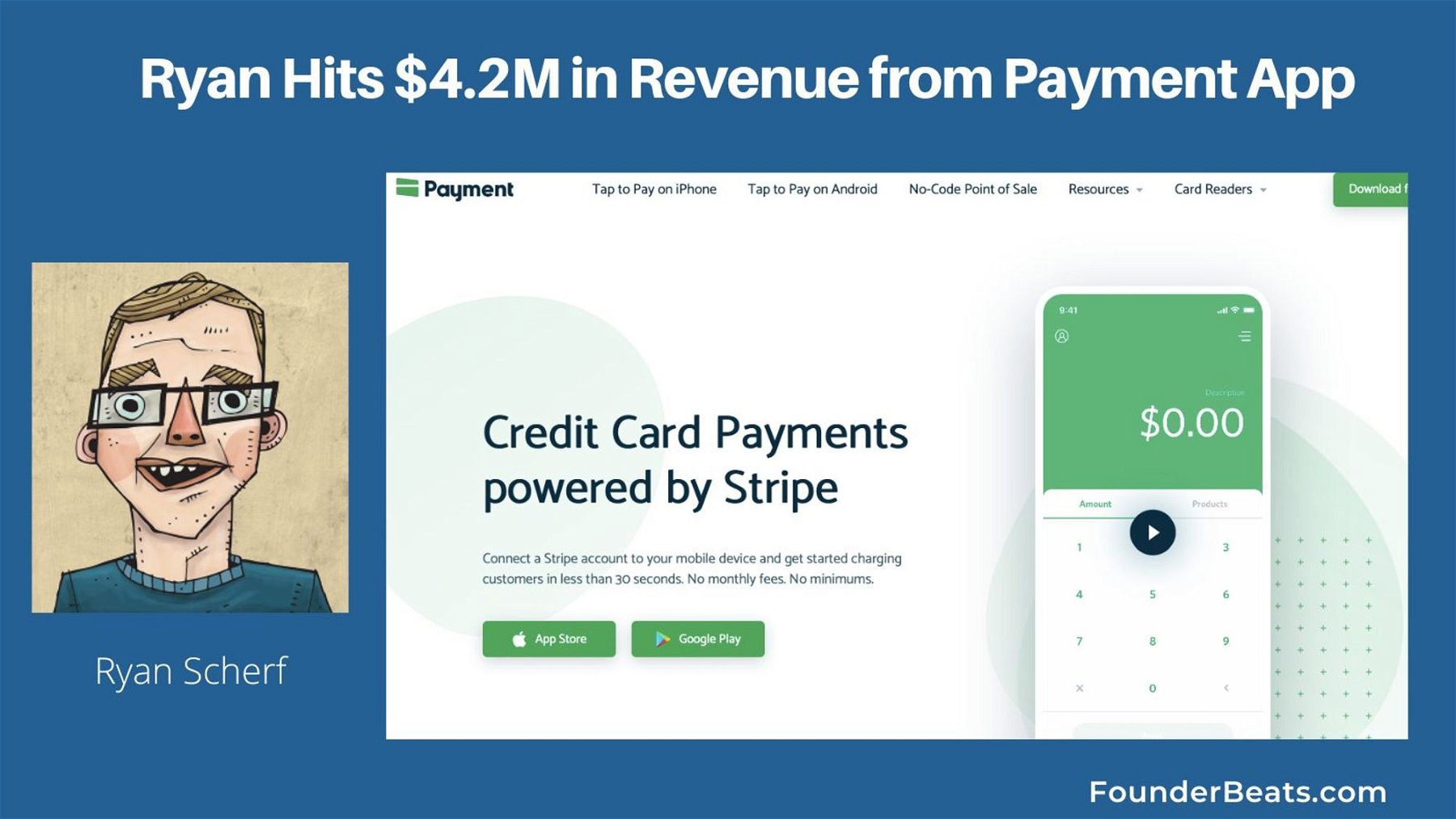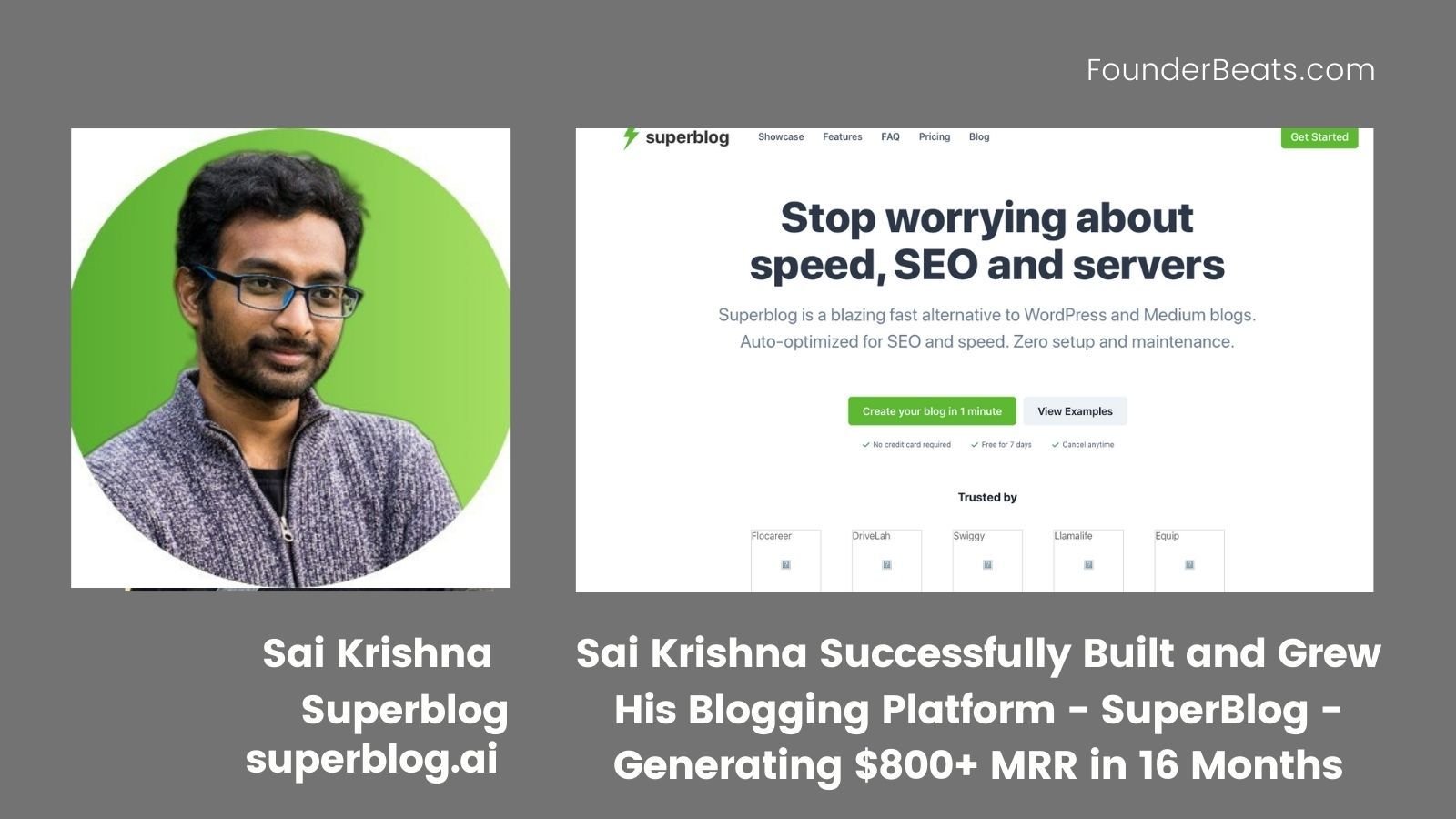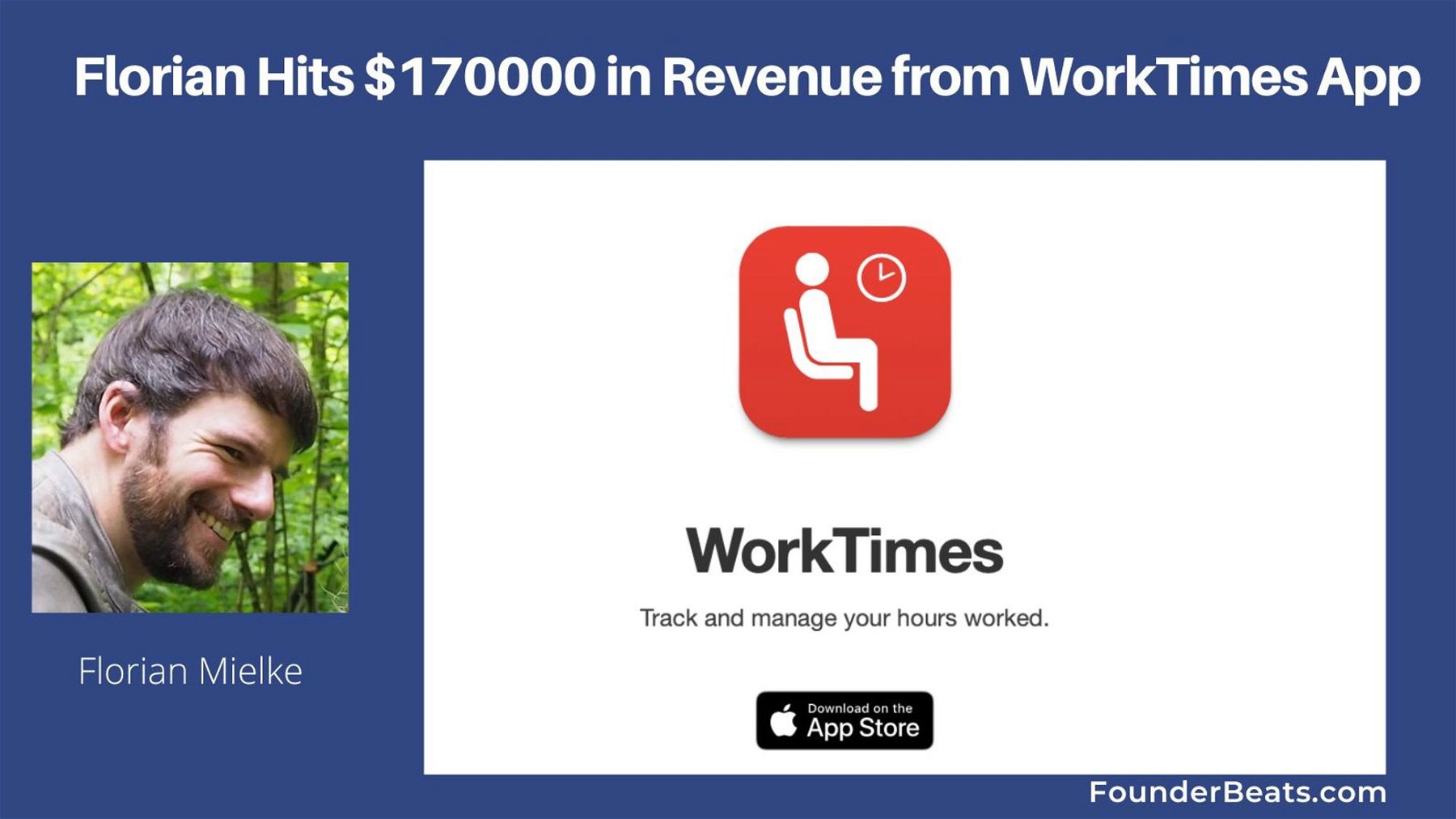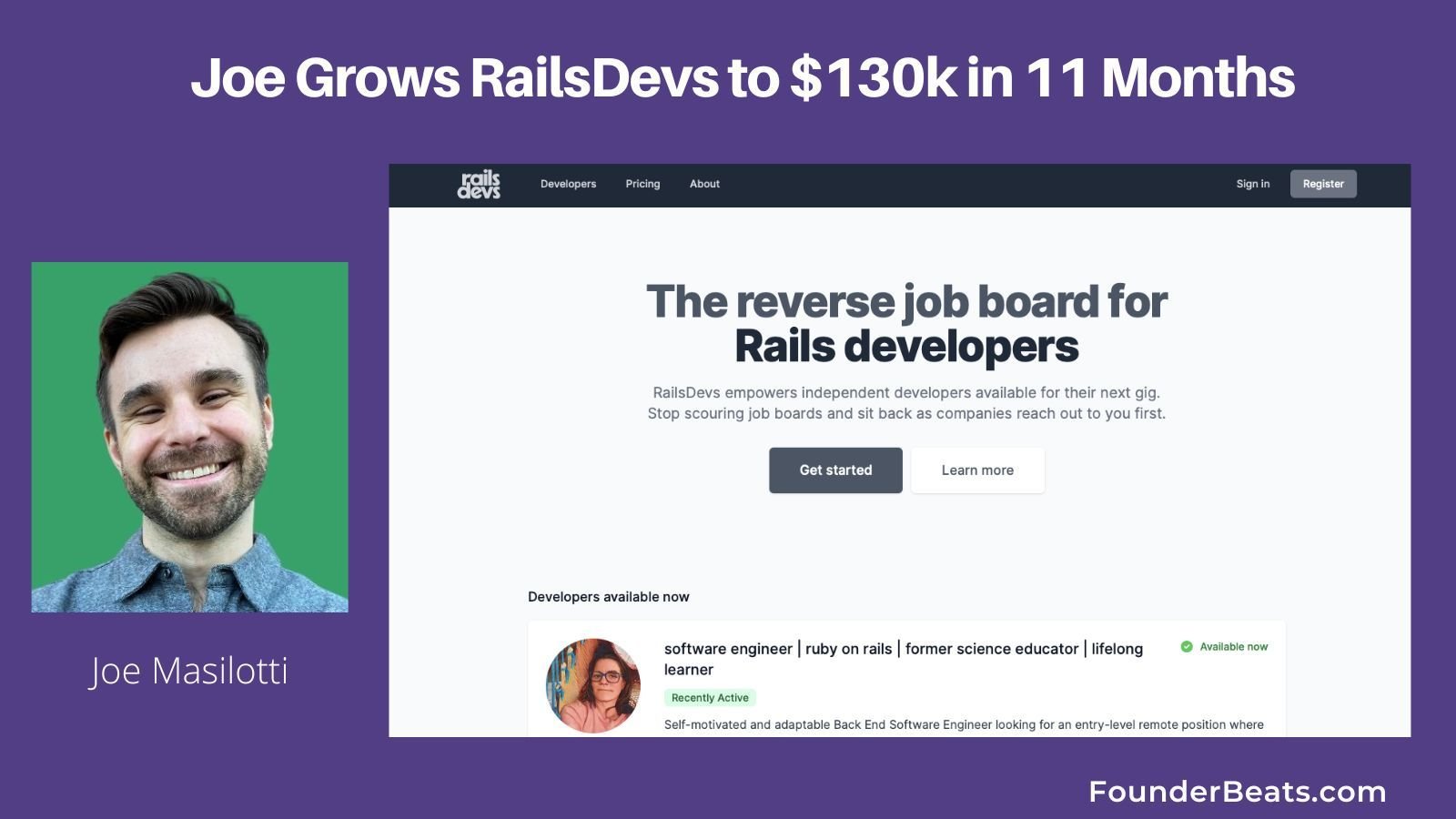Table of Contents
- Tell us about your product and what inspired you to start it?
- How long did it take you to acquire your first 50 customers, and what was your growth strategy?
- Which technology stack are you using and what challenges and limitations does it pose?
- What are some of the most essential tools that you use for your business?
- What have been some of the biggest insights you've gained since starting your entrepreneurial journey?
- Your recommended books/podcasts/newsletters etc.:
Ryan Scherf is the founder of Payment - No-code point of sale, built on top of a Stripe account
Tell us about your product and what inspired you to start it?
The app started as a feature of a different app, which was the first analytics app for your Stripe account back in 2013. My partner at the time had a desire to collect credit cards at a garage sale he was having, so we built the ability to collect payments directly into the analytics app. This was long before Stripe had any of their specialized pre-built Elements.
Then in 2015, we decided to split the apps and focus on Payment exclusively while sunsetting the analytics app. Unfortunately, this decision wasn't as simple as it sounded. Stripe at the time had also launched their version of an analytics app, and we knew there would be no way to compete with them since they had 1st party access to the data they were displaying. It was a rough patch for us, but having Payment be profitable from the minute we launched — and making over $1,300 in our first month, it eased the pain a bit!
How long did it take you to acquire your first 50 customers, and what was your growth strategy?
Since we had already established a decent user base with our analytics app (roughly 2,000 MAU), we had a decent list to begin to grow. Our growth strategy was extremely simple: rank in the App Store for any keywords related to Stripe. For several months, our app was actually ranked higher than the 1st party Stripe Dashboard app. We acquired our first 50 customers in a matter of a few days.
We were the first mobile payment app to launch for Stripe. The first Verified Partner. The first to implement Stripe Terminal and the first to launch with Apple Tap to Pay on iPhone. Being first is a great growth strategy when it comes to partnerships.
We received a lot of feedback regarding the risk of attaching ourselves so tightly with Stripe. And the comments about how crazy we were to build on top of the platform again after having our previous app wiped away. But, as a value added reseller of Stripe services, we feel confident in our offering. It's true, Stripe could do what we're doing. But, can they listen to customers better than us? Can they provide top notch support better than us? Can they build a product that works for everyone while managing their suite of other tools? Do they even want to? Each morning I wake up wondering when the day will be that this journey will be over, and for 7 years, it hasn't happened. One day at a time.
Which technology stack are you using and what challenges and limitations does it pose?
We have two native apps: iOS and Android. Obviously, that can become burdensome when adding features as there isn't enough time to do everything for both. We explored using other technology like React Native, but found that it just didn't feel right for what we were trying to accomplish. Unfortunately, this also means that we've had to make decisions to focus on one app over the other, so the two platforms do not have parity with each other. But, we're slowly getting there!
What are some of the most essential tools that you use for your business?
Dating back all the way to 2013, we've always used Mixpanel for analytics. It can get spendy if you use it incorrectly, but it's always offered the most flexibility and alignment with the apps we've built.
What have been some of the biggest insights you've gained since starting your entrepreneurial journey?
I'm not smarter than anyone else to ever do it. I'm not a thought leader. Just like so many others — I was in the right place at the right time and I was persistent. Bootstrapping a business is a rollercoaster and the highs are really high and the lows are even lower. But when you zoom out a bit, you'll realize everything is going to be fine.
Second, I've learned to focus. I worked at several high profile startups before starting my own app and always found one consistency: they tried to do everything. Every feature needed to be built and shipped yesterday and it was unsustainable. Being a solo founder it was impossible for me to do this, so I had to be particular with what I was building.
Lastly, I think all founders should be part of the support team. It's so easy to outsource support because most people find it a waste of time. But, as someone who has answered thousands of support tickets over the last 7 years, I can tell you with certainty it is where the money is made. Be diligent and helpful in your responses, and your customers will appreciate you. Build what the masses want, and you'll retain them.
Your recommended books/podcasts/newsletters etc.:
I'm a volunteer youth hockey coach, so I listen to a lot of podcasts regarding youth sports. While coaching my two sons, I'm always looking for ways to get kids to engage more. And by learning these tricks, I'm able to apply it to my own career journey. Is what I'm doing actually fun? Heather Mannix has an excellent podcast episode on the details of Fun.
https://podtail.com/en/podcast/the-coach-s-road/episode-19-what-is-fun-with-heather-mannix/



